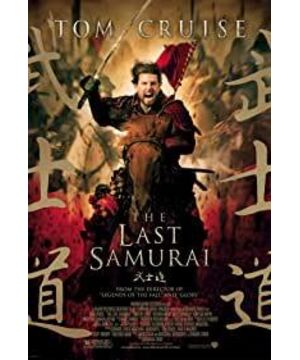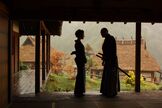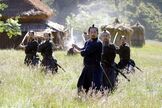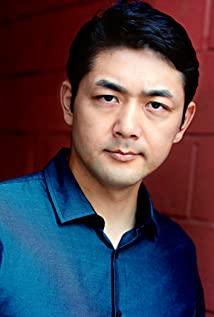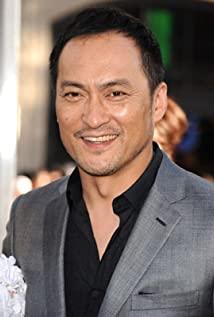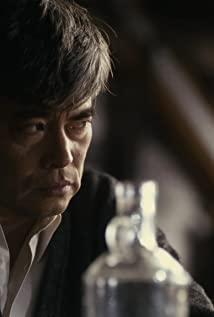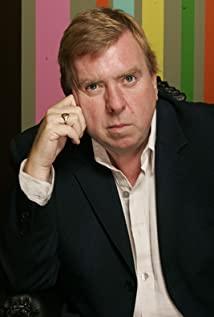I have always felt that Westerners’ works with oriental themes lack some popularity. The Hollywood-style perfect ending, the strong personal heroism and the oriental introverted culture always have a sense of disharmony, and Bian Qian’s true qualities are not transitioned. Tom's voice and smile obviously added a lot of points to "The Last Samurai".
As a generation of imperial master, Mori Katsumoto provoked a "rebellion." He never thought of himself as a rebel. As long as His Majesty the Emperor ordered me to have a caesarean section, I was just fighting against the Emperor's enemy. In Mori Katsumoto's eyes, those who put the people's anointing into their pockets in the name of the reform are Japan's real enemies. The questioning of "Did you share your money with the people" made Omura feel helpless. He is not opposed to the Restoration and modern civilization. In the communication with Tomoko, we can see that Katsumoto speaks fluent and standard non-Japanese English. Although this is due to Watanabe Ken’s good English level, it is also from the side. It shows that the character Mori Katsumoto was also committed to learning from the Western world. He did not stand still in the armor saber left by his ancestors. He was very interested in the experience of the captain fighting the Indians. Finally, he gave the captain the samurai sword. The above sentence "I am a samurai who combines tradition and modernity" also means this. The sentence "They refuse to surrender" before the confrontation between the two armies shows a bit of romanticism. Watanabe Ken has created a very full and last samurai , Samurai infected Elgeland with his own spiritual charm and Bushido spirit, and it also made us stand on Mori Katsumoto's side unconsciously when we watched it.
There are two eras in Japan that interest me. One is the shining star one after another in the Warring States period of Japan, and the other is the Meiji Restoration era in which we tirelessly learn from Western civilization from the West.
Countless Japanese samurai in the Warring States Period used their life's bravery to light up their names in the twilight of troubled times, ranging from the famous name such as Takeda Shingen Uesugi Kenshin to Honda Tadaka and Sanada Shinshige who fought bloody battles. Warriors, no matter they were born poor or noble, the faith of a samurai will always be as gorgeous as a cherry blossom.
However, there is no cherry blossom in the world that will never wither, there will be no eternal life, and there will be no forever Japanese samurai. The end of the shogunate is the era of the end of the samurai. We or our followers Sakamoto Ryoma Saigo’s footsteps, or pull Shinsengumi’s clothing corners, or going back along the defeat in the Sino-Japanese War of Sino-Japanese War, will find this last era of warriors. The privileges of the warrior class are deprived, the hair buns are cut off, and the glory of ancestors begins to change in the face of the trend of reforms. To be dimmed, those once glorious existences fought more fiercely towards the end. The Kongjiadian in China and the samurai in Japan are also, so there is the collision of katana and howitzer, machine guns and war horses. In the competition, it is true that the samurai did not oppose the use of firearms in history. Foreign guns and foreign artillery were widely used during the Warring States Period in Japan. When you mention Oda Nobunaga, you can't help but think of his foreign gun team, and Nishigo Takamori's army also used firearms. But in the handling of the movie, it is obvious that the collision between cold weapons and firearms is very impactful, and the director’s intentions can also be understood. The
samurai died in this era, and when Japan was stepping into the ranks of imperialism in the footsteps of the Meiji Restoration. Samurai became an unnecessary existence of the Great Japanese Empire. They used their beliefs to fight against the times and eventually became a historical term. This battle is also a test of Japan’s tomorrow. Tradition and modernity are fighting for the future of Japan. They couldn't change their destiny, but they were able to go all out to wait for the fate to be revealed, so they put on the armor and drew the katana.
When it comes to samurai, another term that must be mentioned is Bushido. What is Bushido is to completely obey a set of ethics, to pursue inner peace or to practice the katana technique. Bushido includes many things. It regards failure as a shame. Caesarean is regarded as an honor, and it is regarded as an honor to be able to introduce mistakes to friends. Bushido makes the man with the sword loyal to his master, and he can do everything in order to fulfill his promise, but in a word, what Bushido is. It is difficult to generalize things, just like Confucianism to Chinese officials, but the most obvious point is that Bushido has no attachment to life, only persistence in faith.
Moreover, looking at the bloody history of the twentieth century, we will understand that although the samurai is no longer, Bushido has not died out.
In the final battle of the movie, facing the fearless Japanese samurai like the Spartan 300 Warriors, the imperial army was also moved. Eventually, the officer commanding the machine gun unit ordered a cease-fire, and Katsuemoto acted with the help of American friends. A samurai died gloriously, and the new Japanese army on the opposite side also showed their respect. In my opinion, at this moment. Although the samurai died, the spirit of Bushido has been passed on. Japanese soldiers uphold the beliefs of the samurai ancestors to open up territories for the Empire of Japan, from the Sino-Japanese War of Sino-Japanese War to the Northeast of September 18th to Shanghai on January 28th. By the time they drove a plane into an American aircraft carrier, the Japanese soldiers took the Bushi Taoism to their death and forgotten their lives and dragged this newly civilized country into an inextricable war quagmire. After World War II, Japan’s reflection on the war was not as good as Germany’s, but I think the reason is also related to the Bushido spirit. The Americans did not classify the emperor as a war criminal, and the emperor is not wrong. Those who are loyal to the emperor are naturally. I don’t think I’m wrong.
As for the Bushido spirit itself, under historical conditions, there must be a commendable side. Maintaining the honor of individuals and organizations at all costs, from a certain point of view, is also in line with our party’s propaganda not to be afraid of sacrifice. However, it is placed in the increasingly perfect modern civilization. Today, we pay more attention to human rights, individuality, freedom, democracy, and the happiness and well-being of the people, rather than ideological struggles or the expansion of nationalism. This concept is gradually transitioning from the West to the East, and it is gradually passed on from one generation to the next. A generation, this is also the so-called universal value, transcending civilization, transcending the country, transcending the nation, transcending culture, is the consensus of human society. From this perspective, the Bushido spirit is actually quite anti-human, and its own life is dead. The cherished culture is better for modern civilization to abandon.
The process of human progress is also a process of collision between various cultures and civilizations. There will be winners and losers. The feudal ethics of China began to collapse in the roar of a hundred years ago. I believe the ideology left over from the Red Age will remain in my lifetime. Seeing its curtain call, Japan’s Bushido has dissipated with the mushroom cloud that soared to the sky when two atomic bombs exploded. Looking at Japanese works about death, it’s like "The Enemy", and everything contained in it is respect for life and respect for the people. The grassy era of samurai is gone forever, but samurai is indeed an enduring creative theme, and it also brings us a lot of joy and arouses many of us’s interest in Japanese culture. Nobunaga's interest is absolutely inseparable from the strategizing Oda Nobunaga and Sengoku Musouri in the Tokugawa Honjin with a spear in hand and Nobunaga Sanada.
2010.09.09 Zhengzhou
View more about The Last Samurai reviews


